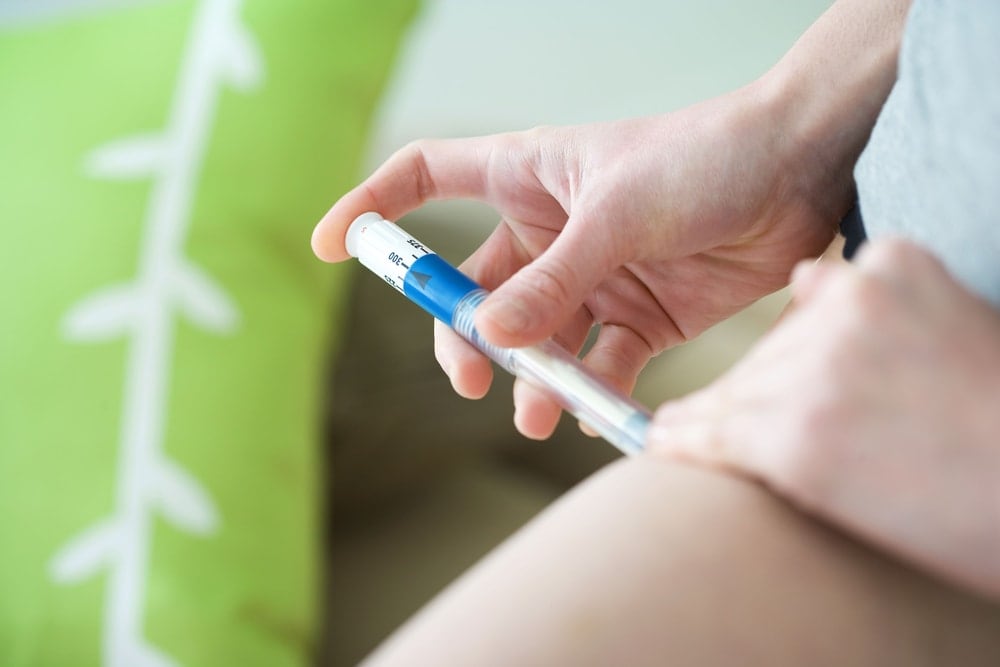Types of Fertility Medications
Fertility Medications are a regular and normal part of infertility treatments and the in vitro fertilization (IVF) procedure. These medications are used to prepare the body for treatment and to increase the probability that more healthy eggs are released from the ovaries. A reproductive specialist can evaluate your situation to determine the most appropriate medications for your situation.
The Following Medications are Used for Ovarian Stimulation:
Clomiphene citrate (CC): There are two types of medications, Clomid®, and Serophene®. These medications work by increasing the amount of FSH the pituitary gland secretes. These are often used to stimulate ovulation in women who have absent periods, infrequent periods or long cycles.
The dosage is usually started at 50mg a day, for a certain amount of days. Dosage may be increased if ovulation still does not occur, although the chances of side effects increase as the dosage increases. The American Society for Reproductive Medicine (ASRM) recommends that clomiphene is prescribed for only 3-6 cycles.
Potential side effects include:
- Increased incidence of multiple births
- Increased incidence of miscarriage
- Hot flashes, nausea, and breast tenderness
- Headaches or blurred vision
- Depression and mood swings
- Ovarian cysts and pelvic discomfort from overstimulation of the ovaries
Synthetic Human Chorionic Gonadotropin (hCG): Intramuscular injections used to trigger ovulation. Often used when other medications have been taken to induce ovulation. Common human chorionic gonadotropin (hCG) medications include Pregnyl®, Profasi® Novarel®, and Ovidrel®. There are no known side effects if ONLY taking hCG.
Follicle Stimulating Hormone (FSH): An injection given just under the skin (subcutaneous injection) that bypasses the hypothalamus and pituitary glands to directly stimulate follicle growth in the ovaries.
Common FSH medications include:
- Bravelle®
- Follistim®
- Gonal-F®
Potential side effects include:
- Increased incidence of multiple births
- Increased incidence of miscarriage and premature delivery
- Breast tenderness, swelling, or rash at the injection site
- Mood swings and depression
- Hyperstimulation syndrome which includes enlarged ovaries, abdominal pain and bloating
Human Menopausal Gonadotropins (hMG): An injection that contains equal parts of FSH and LH (luteinizing hormone), given to stimulate the ovaries to produce multiple eggs during one cycle.
Common hMG medications include:
- Menopur®
- Repronex®
These are the most potent ovulation medications currently used today. Potential side effects include the same as noted above for FSH.
Bromocriptine and Cabergoline: Oral medications used to reduce the amount of prolactin released by the pituitary. The brand name for bromocriptine is Parlodel® and the brand name for cabergoline is Dostinex®. Potential side effects include:
Gonadotropin-Releasing Hormone (GnRH): An injection used to stimulate the pituitary gland to secrete LH and FSH. Common names for GnRH medications include Factrel® and Lutrepulse®. Potential side effects include:
- Slight chance of multiple births
- Mild hyperstimulation which includes enlarged ovaries, abdominal pain, and bloating
- Headaches and nausea
The Following Medications are Used to Prevent Premature Ovulation:
GnRH Agonists (Analogs): There are two types of medications. Lupron® and Zoladex® are injections given below the skin and Synarel® is a nasal spray. These medications are used to enable the body to produce a higher number of quality eggs. These medications are also designed to prevent the mid-cycle hormonal surge which can result in a canceled cycle.
Potential side effects include:
- Hot flashes
- Headache
- Mood swings
- Insomnia
- Vaginal dryness
- Decreased breast size
- Painful intercourse
- Bone density loss
GnRH Antagonists: These medications, Ganirelix Acetate®, and Cetrotide®, are injections administered for three to four days.
These medications operate as antagonists of the gonadotropin causing the hormone (GnRH) to be released to help prevent premature ovulation. Potential side effects are the same as GnRH.
Other Medications Used to Enhance Fertility Treatments:
Medrol: A steroid provided daily for four days during the cycle to assist with pre-embryo implantation.
Doxycycline: An oral antibiotic provided to the male partner during the female’s stimulation cycle to reduce the levels of bacteria which may be found in semen. This medication is also given to the female partner to decrease the risk of infection after aspiration of the follicles at the time of egg retrieval.
Progesterone: Intramuscular injections provided daily beginning two days after retrieval and finishing when the placenta is creating appropriate amounts of Progesterone. Progesterone may be administered through a vaginal gel, suppository or in a pill.
Fertility Supplements: Many couples opt for natural, non-prescription fertility supplements containing vitamins, minerals, antioxidants and/or herbs to help improve their reproductive health.
Our Ultimate Fertility Resource Guide provides the information you need on fertility, tips on how to get pregnant faster, and how to boost fertility through sometimes simple tweaks to your lifestyle and approach. The guide is easy to read and meant for anybody wanting to increase their ability to conceive. It’s a free download and includes coupon codes for essential products. Even free Nightfood Nighttime Ice Cream.
More informative articles:
Compiled using information from the following sources:
1. RESOLVE: The National Infertility Association
2. The Association of Reproductive Medicine (ASRM)






